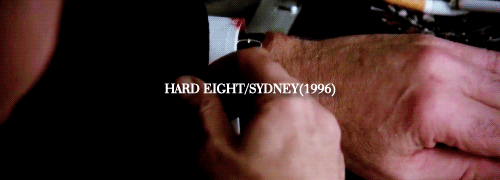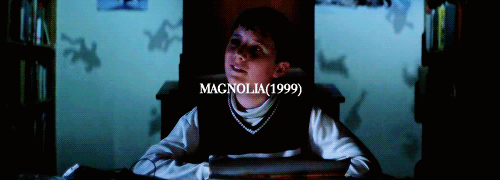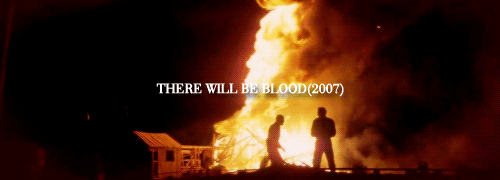Text
Half Awake
“Compared to what we ought to be, we are only half awake. We are making use of only a small part of our physical and mental resources. Stating the thing broadly, the human individual thus lives far within his limits. He possesses power of various sorts which he habitually fails to use.” – William James I stumbled upon this quote in the book How to Win Friends and Influence People. Yeah, I know,…
View On WordPress
24 notes
·
View notes
Text
Our Animal Roots
Jared Diamond, author of the popular Guns, Germs and Steel, takes a look at humanity’s animal roots and teases out precursor behavior in our closest relatives, the apes and also speculates how early hominids behaved. While he is mostly successful, I was constantly reminded that I am only getting one view rather than a more collective view of anthropologists in general. This is not a dig – most of…
View On WordPress
6 notes
·
View notes
Text
The urge to be a writer…
The urge to be a writer…
Being a writer is a funny thing. You have to believe you have something worth saying, something that people will actually want to read, something of worth. And nothing is more intimidating than the blank page – lidless, idle, shouting. Some writers have egos, some are plagued by insecurity or maybe some cover their insecurities with the façade of an ego. Who knows? For me the challenge is…
View On WordPress
5 notes
·
View notes
Quote
The key to the creative type is that he is separated out of the common pool of shared meanings. There is something in his life experience that makes him take the world as a problem; as a result he has to make personal sense out of it. This holds true for all creative people to a greater or lesser extent, but it is especially obvious with the artist. Existence becomes a problem that needs an ideal answer; but when you no longer accept the collective solution to the problem of existence, then you must fashion your own. The work of art is, then, the ideal answer of the creative type to the problem of existence as he takes it in —not only the existence of the external world, but especially his own: who he is as a painfully separate person with nothing shared to lean on. He has to answer to the burden of his extreme individuation, his so painful isolation… His creative work is at the same time the expression of his heroism and the justification of it. It is his “private religion,” as [Otto] Rank put it.
Ernest Becker in The Denial of Death, the thesis of which can perhaps be summed thusly: humanity sublimates its fear of death through the causa sui project: the construction of meanings which are enduring and non-contingent despite our mortality and ludicrous, creaturely contingency. Society, culture, and the illusions on which we depend are the fruit of this “immortality project”:
The fact is that this is what society is and always has been: a symbolic action system, a structure of statuses and roles, customs and rules for behavior, designed to serve as a vehicle for earthly heroism. Each script is somewhat unique, each culture has a different hero system… It doesn’t matter whether the hero-system is frankly magical, religious, and primitive or secular, scientific, and civilized. It is still a mythical hero-system in which people serve in order to earn a feeling of primary value…
Heroic roles might include “breadwinner,” “mother,” “shaman,” “scientist,” “hedonist,” or any other designation which indicates how a person justifies their exertions and sufferings, pleasures and triumphs. Even to claim total purposelessness is a kind of assertion of meaning: a modest refusal to participate in hero-systems is a kind of heroism, a sought-out exceptionalism to this organismic problem of individuation and death. Indeed, when we talk of meaning as such, perhaps we are merely describing those symbols which exceed the individual but do not disappear into the inhuman cosmos, those ideas which are not organismic, will not die with the matter or, if they do, will somehow still suffice to justify its existence.
Becker’s work fascinates with its elucidation of how death drives this search for meaning and how the accidentally-developed and arbitrary illusions which provide meaning can both support the transcendence we require and enslave us. Indeed, Becker devotes much of the book to neurosis, which he suggests occurs when illusions fail, when hero-systems malfunction, and when the creature cannot escape his mortality:
What we call the well-adjusted man has…the capacity to partialize the world for comfortable action… [T]he “normal” man bites off what he can chew and digest of life, and no more. In other words, men aren’t built to be gods, to take in the whole world; they are built like other creatures, to take in the piece of ground in front of their noses… [A]s soon as a man lifts his nose from the ground and starts sniffing at eternal problems like life and death, the meaning of a rose or a star cluster, he is in trouble. Most men spare themselves this trouble by keeping their minds on the small problems of their lives just as their society maps out these problems for them. These are what Kierkegaard called the “immediate” men and the “Philistines.” They “tranquilize themselves with the trivial” —and so they can lead normal lives.
What we call neurosis enters at precisely this point: some people have more trouble with their lies than others. The world is too much with them, and the techniques they have developed for holding it at bay and cutting it down to size finally begin to choke the person himself. This is neurosis in a nutshell: the miscarriage of clumsy lies about reality.
Both the neurotic and the artist are people for whom society’s hero-system and culture’s roles and meanings have failed in some measure, but whereas the former responds with ineffectual or destructive compulsions —misguided efforts to control and organize the terrors of organismic life, or to imbue them with specious meanings— the latter attempts to "justify his heroism objectively, in the concrete creation.“ But the two are not so far apart, as everyone familiar with the association between neurosis and creativity knows:
The neurotic exhausts himself not only in self-preoccupations like hypochondriacal fears and all sorts of fantasies, but also in others: those around him become his…work; he takes out his subjective problems on them… The neurotic’s frustration as a failed artist can’t be remedied by anything but an objective creative work of his own. Another way of looking at it is to say that the more totally one takes in the world as a problem, the more inferior or "bad” one is going to feel inside oneself. He can try to work out this “badness” by striving for perfection, and then the neurotic symptom becomes his “creative” work; or he can try to make himself perfect by means of his partner. But it is obvious to us that the only way to work on perfection is in the form of an objective work that is fully under your control and is perfectible in some real ways. Either you eat up yourself and others around you, trying for perfection, or you objectify that imperfection in a work on which you then unleash your creative powers. In this sense, some kind of objective creativity is the only answer man has to the problem of life… He takes in the world, makes a total problem out of it, and then gives out a fashioned, human answer to that problem. This, as Goethe saw in Faust, is the highest that man can achieve.
I am partial to that definition of art, incidentally: a fashioned, human answer to the problems of the interiorized world of a given artist. Becker continues with a cold, obvious, and sadly persuasive point:
From this point of view the difference between the neurotic and the artist seems to boil down to a question of talent… [The neurotic] can glorify himself only in fantasy, as he cannot fashion a creative work that speaks on his behalf… He is caught in a vicious circle because he experiences the unreality of fantasied self-glorification. There is really no conviction possible for man unless it comes from others or from outside himself in some way —at least, not for long. One simply cannot justify his own heroism in his own inner symbolic fantasy, which is what leads the neurotic to feel more unworthy and inferior.
And what gives you your sense of meaning? Into what role do you pour yourself, and by what sort of creation are you satisfied? Do you, like me, sometimes notice with horror that your idle time is spent trafficking in the most pitiful and empty fantasies —shortly to be forgotten, a waste of daydreams— and your working hours pass with your nose to the ground before you? Have you a causa sui project, or have you found your meaning on a shelf, readymade for you? Are you quick to critique the hero-systems of others, or do you feel a kinship with all who seek meaning, who at least talk of purpose, love, death, as opposed to the goddamned news?
(via mills)
321 notes
·
View notes
Photo

Guests at the Villa Nirvana, owned by Oscar Obregon, in Las Brisas, Acapulco, 1972 Photo Slim Aarons
43K notes
·
View notes
Quote
I hope that I never write that well, I want to die with my head down on this machine 3 lines from the bottom of the page burnt-out cigarette in my fingers, radio still playing I only want to write just well enough to end like that.
Charles Bukowski, from War All The Time (Poems 1981-1984)
497 notes
·
View notes
Quote
Life is to be lived, not controlled; and humanity is won by continuing to play in face of certain defeat.
Ralph Ellison, Invisible Man (via whyallcaps)
343 notes
·
View notes
Photo









SCHNEIDER AND SCHNEIDER ARCHITEKTEN
HOUSE IN AARAU
VIA
238 notes
·
View notes














